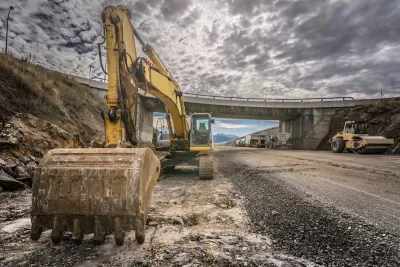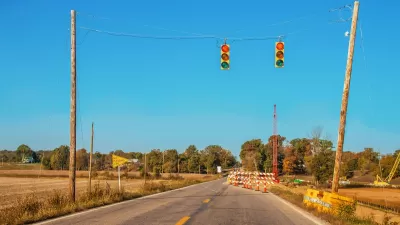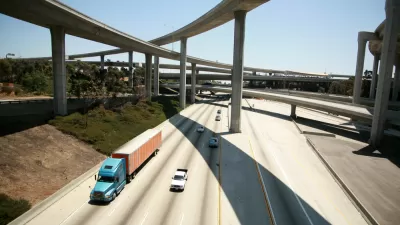The 2023 Highway Boondoggles report is here.

The Highway Boondoggles report, an annual release from the Public Interest Research Group (PIRG), highlights the most “wasteful or unnecessary” highway projects in the nation. According to the report, “In FY 2023, as of the end of May, states had committed $26.6 billion in highway and bridge formula funds to support over 19,300 new projects, on top of the $53.5 billion invested in more than 29,000 projects in FY 2022.” The funding comes in part from the Infrastructure Investment and Jobs Act (IIJA).
The seven projects listed in the report are projected to cost over $15.9 billion and, the report adds, “will harm communities and the environment, while likely failing to achieve goals such as reducing congestion or improving safety.”
The report notes that “Expanding a highway sets off a chain reaction of societal decisions that ultimately leads to the highway becoming congested again – often in only a short time.” Road expansion also creates long-term costs. “In addition to the one-time costs of construction, these projects will cost taxpayers billions of dollars over the years to maintain, saddling future generations with expensive maintenance needs.”
The report makes recommendations for reducing auto dependency and downsizing unnecessary projects, advising that transportation agencies should “Adopt fix-it-first policies that reorient transportation funding away from highway expansion and toward repair of existing roads and investment in other transportation options.”
FULL STORY: Highway Boondoggles

Study: Maui’s Plan to Convert Vacation Rentals to Long-Term Housing Could Cause Nearly $1 Billion Economic Loss
The plan would reduce visitor accommodation by 25,% resulting in 1,900 jobs lost.

North Texas Transit Leaders Tout Benefits of TOD for Growing Region
At a summit focused on transit-oriented development, policymakers discussed how North Texas’ expanded light rail system can serve as a tool for economic growth.

Why Should We Subsidize Public Transportation?
Many public transit agencies face financial stress due to rising costs, declining fare revenue, and declining subsidies. Transit advocates must provide a strong business case for increasing public transit funding.

A Visual Celebration of Manhattan’s Chinatown Elder Community, Through Food
Lanterns, cafeteria trays, and community connection take center stage in this stunning photo essay.

How to Make US Trains Faster
Changes to boarding platforms and a switch to electric trains could improve U.S. passenger rail service without the added cost of high-speed rail.

Columbia’s Revitalized ‘Loop’ Is a Hub for Local Entrepreneurs
A focus on small businesses is helping a commercial corridor in Columbia, Missouri thrive.
Urban Design for Planners 1: Software Tools
This six-course series explores essential urban design concepts using open source software and equips planners with the tools they need to participate fully in the urban design process.
Planning for Universal Design
Learn the tools for implementing Universal Design in planning regulations.
City of Santa Clarita
Ascent Environmental
Institute for Housing and Urban Development Studies (IHS)
City of Grandview
Harvard GSD Executive Education
Toledo-Lucas County Plan Commissions
Salt Lake City
NYU Wagner Graduate School of Public Service





























